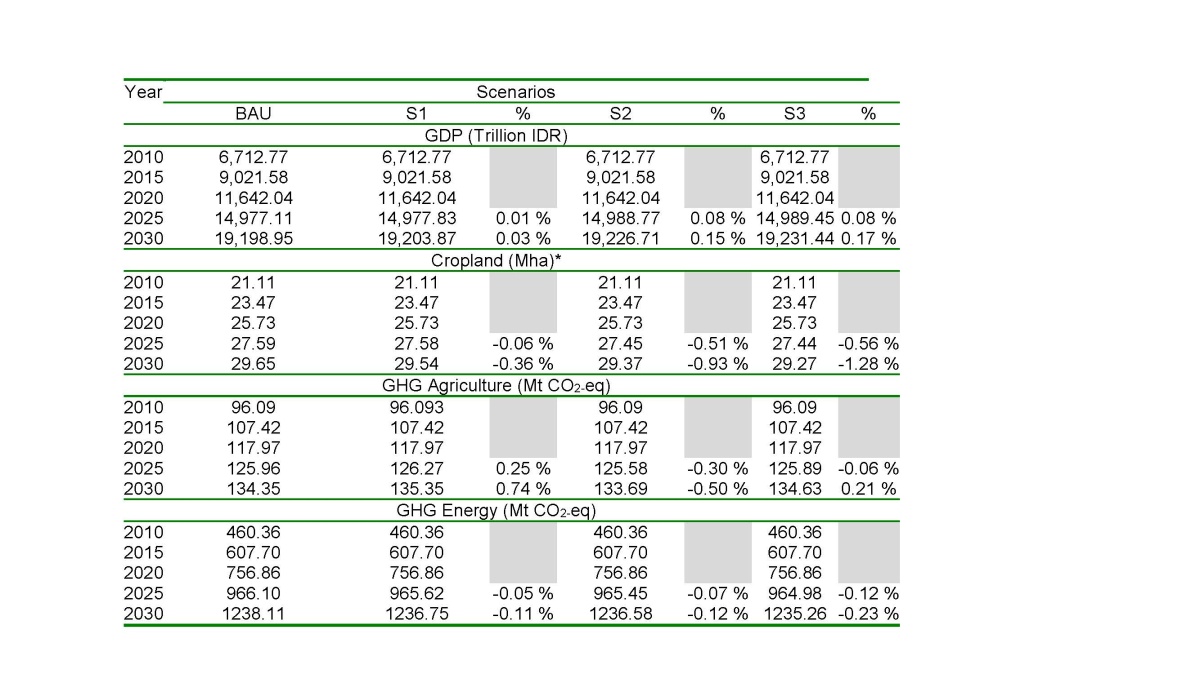Information of Paper
Impact of Reducing Food Wastage to the Environment and Economics: A Preliminary Finding of Indonesia Case
Authors:Marissa Malahayati and Toshihiko Masui
Year:2021
Journal:Chemical Engineering Transactions, 89, 67-72.
Keywords
Food loss, Agriculture Productivity, Computable General Equilibrium (CGE), Indonesia
Abstract
More than 20 Mt of food in Indonesia are wasted every year without being consumed. Around 50 % of these foods are already wasted on-farm, even before they are processed and consumed further. The situation is very concerning because Indonesia also needs to ensure the national food stock, given the increasing population and decreasing agricultural land from year-to-year. The Indonesian government is trying to boost agriculture productivity, especially for food crops. Reducing on-farm food loss is believed to have helped the government overcome food insufficiency and increase income. The problem is that there is still limited research on this topic. As there is still limited economic modelling involved in all national reports, statistics, and research, there is still a lack of future projection on food wastage reduction impact. This study would like to assess the potential impact of on-farm food loss reduction on the economy and the environment by utilising the Computable General Equilibrium (CGE). This study compares two sets of policies introduced by the Indonesian government, such as improving yield and productivity for some agricultural products (cereals, food crops, horticulture, and dairy) and reducing food loss. The simulation results suggested that the combination of yield improvement and food loss reduction may increase Indonesia's Gross Domestic Product (GDP) by 0.17 % compared to the Business as Usual (BAU) by 2030. The policy is also able to lower the demand for cropland and reduce the GHG emission from agriculture. The simulation results also indicate that reducing food loss is more effective than focusing on increasing production and productivity. By comparing both the policies, reducing the food loss is potentially more economically profitable (increasing GDP by 0.93 % compared to BAU by 2030) than if the government is only concerned with yield improvement (increase GDP 0.74 % by 2030).





